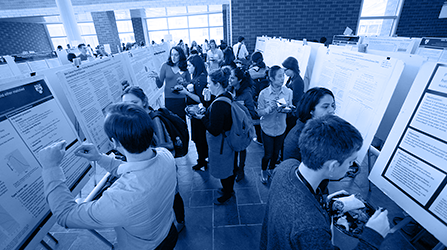Dr. Li Shen Appointed Interim Director of the Division of Informatics
We’re excited to share that Li Shen, PhD, has agreed to serve as Interim Director of the Division of Informatics.
Advancing health systems that continuously learn and improve by discovering complex patterns in big data.

Translational research is at the core of everything we do. Our research community is focused on bridging the gap between theoretical knowledge and data-driven insights into real-world clinical applications that directly benefit patients, populations, and improve public health outcomes. Informatics plays a pivotal role by enabling the efficient collection, analysis, and interpretation of expansive and diverse data, which is essential for transforming scientific discoveries into practical medical applications.
Within our division, we understand that novel healthcare solutions don’t occur in isolation—they require collaboration. Bringing scientific breakthroughs from bench-to-bedside is a complex process that demands a multidisciplinary approach, uniting data scientists, clinicians, and healthcare professionals. Since people are the ultimate end-users of biomedical information, we also routinely draw upon the social and behavioral sciences. This collaborative synergy facilitates the progression of data-driven insights into groundbreaking treatments, diagnostics, and preventive measures, thereby reshaping the landscape of patient care and population health.
Interim Director, Informatics
Professor of Informatics
Associate Director, Informatics
Executive Assistant to Dr. John Holmes
Stay informed with the latest research findings, news, and events from our division.
We’re excited to share that Li Shen, PhD, has agreed to serve as Interim Director of the Division of Informatics.
Dr. Samantha Piekos’ study shows how placental biology varies across pregnancy complications, highlighting the power of a systems biology approach to distinguish complex pregnancy syndromes.
Dr. Danielle Mowery’s new study explores how patients engage with SMS systems after hospital discharge and what those patterns reveal about future care needs.
Kevin B. Johnson, MD, MS, and Penn Medicine researchers conducted a study demonstrating how an AI-powered scribe technology reduces clinician workload, enhances patient interactions, and decreases after-hours documentation, improving efficiency and easing physician burnout.
Postdoctoral Researcher
Zixuan (Eleanor) Zhang, PhD, is a postdoctoral researcher in the Department of Biostatistics, Epidemiology and Informatics whose work focuses on developing statistical and computational methods in statistical genetics to better understand the genetic architecture of complex human traits, with a particular emphasis on gene expression and single-cell data. Her research is driven by a desire to uncover biological mechanisms underlying disease and to translate methodological advances into meaningful biological insight.
In this Q&A, Zixuan shares what inspired her research path, how her work addresses real-world challenges in human genetics, what she values most about the DBEI community, and how she spends time outside of academia.
Read Q&A